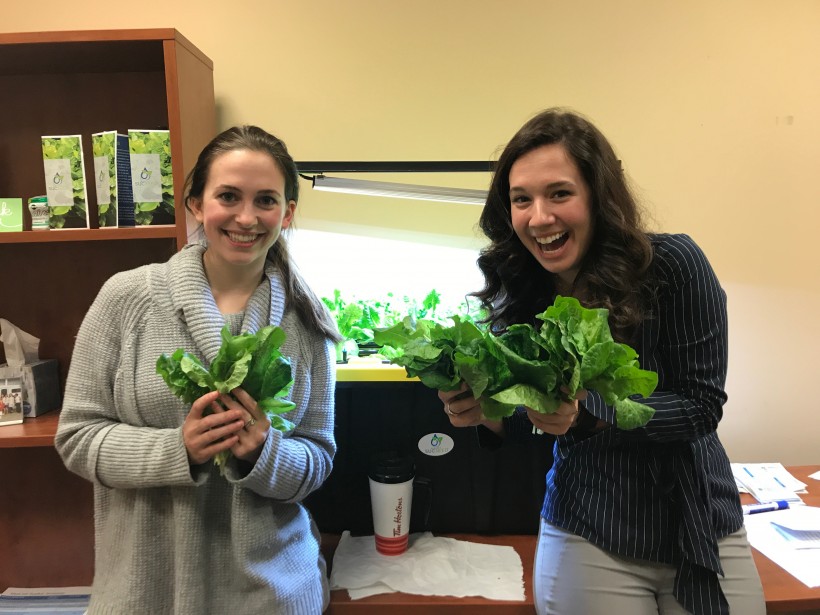What began as a student-run project at the Memorial University of Newfoundland has scaled into a successful business that is addressing key social issues, like youth employment and food security.
Project SucSeed builds small-scale hydroponic gardening systems that allow people to grow fresh herbs and vegetables at home. CEO Emily Bland started SucSeed two years ago during MUN’s Enactus program. The venture won first place at the Enactus World Cup in 2016 and then second place in 2017.
“Food security is at the heart of what we do,” said Bland, 23, during an interview. “I think we’ve lost touch with our food over the past couple of decades. We need to get people excited about growing food again.”
SucSeed’s initial goal was to build 15 systems to donate across Newfoundland and Northern Canada, bootstrapping all the resources.
“And we thought if we could do that, it would be incredible and it would have been something we would have been proud of,” said Bland, who studied accounting at MUN.
But after local media spread the word of SucSeed's hydroponic garden, Bland said she and her team received about 100 enquiries from around the world.
“I thought I had my whole life figured out. But SucSeed grew a lot quicker than any of us ever expected so we reached a point where we’ve outgrown being run by a volunteer group of students," said Bland.
NL Innovation Week Starts Monday
By partnering with Choices for Youth, a Canadian organization that aids at-risk youth, SucSeed hired eight employees to build the gardening systems.
Said Bland: “It’s been our mission to show people you can run a business and have a social heart and it doesn’t always have to have a financial bottom line. You have to make sure things are financially stable but there is such an impact you can have on the social side of things.”
SucSeed’s business team was chosen as one of seven top ventures by SheEO, a global network of high-growth female-led ventures. The team is also travelling to Toronto in a few weeks to take part in the Next36 accelerator.
With funds from SheEO, SucSeed plans to design a new iteration of its system to make it more efficient and reflect its social impact through the design.
Today, there are over 200 SucSeed hydroponic systems in Northern Canada. Bland says the company is moving around $10,000 worth of merchandise a month and is maintaining a 30 to 40 per cent profit margin.
Big corporations like McCain Foods and Tim Hortons have also partnered with SucSeed and helped it get its systems into soup kitchens, classrooms, community centres and even into ships all across the country.
“We’ve seen photos pop up on our Facebook and social media feeds of people in the middle of Northern Labrador in minus 20 degree weather holding fresh kale, and that’s the most rewarding thing,” said Bland.
“It reaches so many different groups and brings so many people together but it’s something as simple as a rubbermaid container.”










